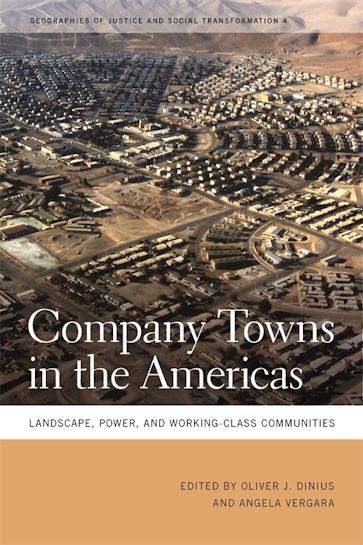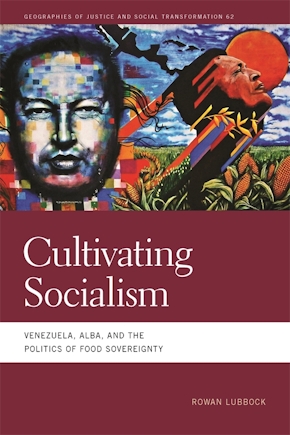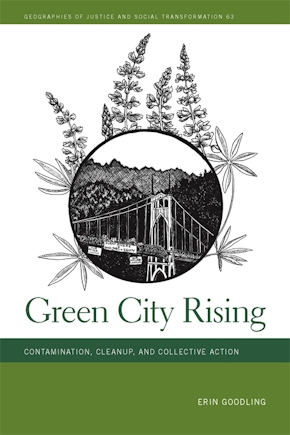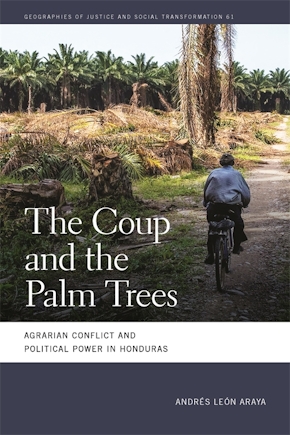Company Towns in the Americas
Landscape, Power, and Working-Class Communities
Title Details
Pages: 236
Illustrations: 10 b&w photos
Trim size: 6.000in x 9.000in
Formats
Paperback
Pub Date: 01/01/2011
ISBN: 9-780-8203-3682-4
List Price: $30.95
Hardcover
Pub Date: 01/01/2011
ISBN: 9-780-8203-3329-8
List Price: $120.95
Related Subjects
SOCIAL SCIENCE / Human Geography
POLITICAL SCIENCE / Public Policy / City Planning & Urban Development
Company Towns in the Americas
Landscape, Power, and Working-Class Communities
Skip to
- Description
- Reviews
- Contributors
Company towns were the spatial manifestation of a social ideology and an economic rationale. The contributors to this volume show how national politics, social protest, and local culture transformed those founding ideologies by examining the histories of company towns in six countries: Argentina (Firmat), Brazil (Volta Redonda, Santos, Fordlândia), Canada (Sudbury), Chile (El Salvador), Mexico (Santa Rosa, Río Blanco), and the United States (Anaconda, Kellogg, and Sunflower City).
Company towns across the Americas played similar economic and social roles. They advanced the frontiers of industrial capitalism and became powerful symbols of modernity. They expanded national economies by supporting extractive industries on thinly settled frontiers and, as a result, brought more land, natural resources, and people under the control of corporations. U.S. multinational companies exported ideas about work discipline, race, and gender to Latin America as they established company towns there to extend their economic reach. Employers indeed shaped social relations in these company towns through education, welfare, and leisure programs, but these essays also show how working-class communities reshaped these programs to serve their needs.
The editors’ introduction and a theoretical essay by labor geographer Andrew Herod provide the context for the case studies and illuminate how the company town serves as a window into both the comparative and transnational histories of labor under industrial capitalism.
This work provides a new, cross-disciplinary look at industrialization's impact in the Americas from the late 19th into the 20th century. It also shows that issues of gender, labor, race, and class cut across borders, offering readers and scholars a transnational context for understanding past and future. Summing Up: Highly recommended.
—Choice
It is not very often that a collection can redefine a whole field; this is one of those times.
—Richard A. Greenwald, coeditor of Sweatshop USA: The American Sweatshop in Historical and Global Perspective
Company Towns in the Americas is a welcome contribution to pan-American industrial history . . . This thought-provoking volume represents a key text on how industrial capitalism and workers shaped and reshaped local landscapes.
—The Americas
Wonderful and original . . . The contributors’ case studies are exceptionally well done, and the result is a very readable book that should be quite accessible to students.
—Steve Striffler, author of Chicken: The Dangerous Transformation of America’s Favorite Food
By broadening our thinking on company towns, the authors present new opportunities for thinking about the convergence between industrial, military, and state planning. Company Towns in the Americas opens exciting new vistas for those who want to understand company towns as more than an exceptional phenomenon.
—Patrick Vitale, Labor History
The authors here suggest that new forms of communication and transportation have already created an ‘earthquake’ and made the traditional company-owned towns a thing of the past.
—Michael A. Amundson, Pacific Historical Review
We are . . . left with vivid, well-researched portraits of the social relations embedded within a wide variety of company towns across the Americas. The case studies implicitly raise important questions about the ways in which company towns have been made, struggled over, and conceptualized. To those questions, Company Towns in the Americas is an important, if not complete, contribution.
—Robert B. Ross, Journal of Historical Geography
Marshall C. Eakin
Elizabeth Esch
Eugenio Feliú
Aurora Gómez-Galvariato
Laurie Mercier
Christopher W. Post
Silvia Simonassi
Fernando Teixeira da Silva
Andrew Herod



